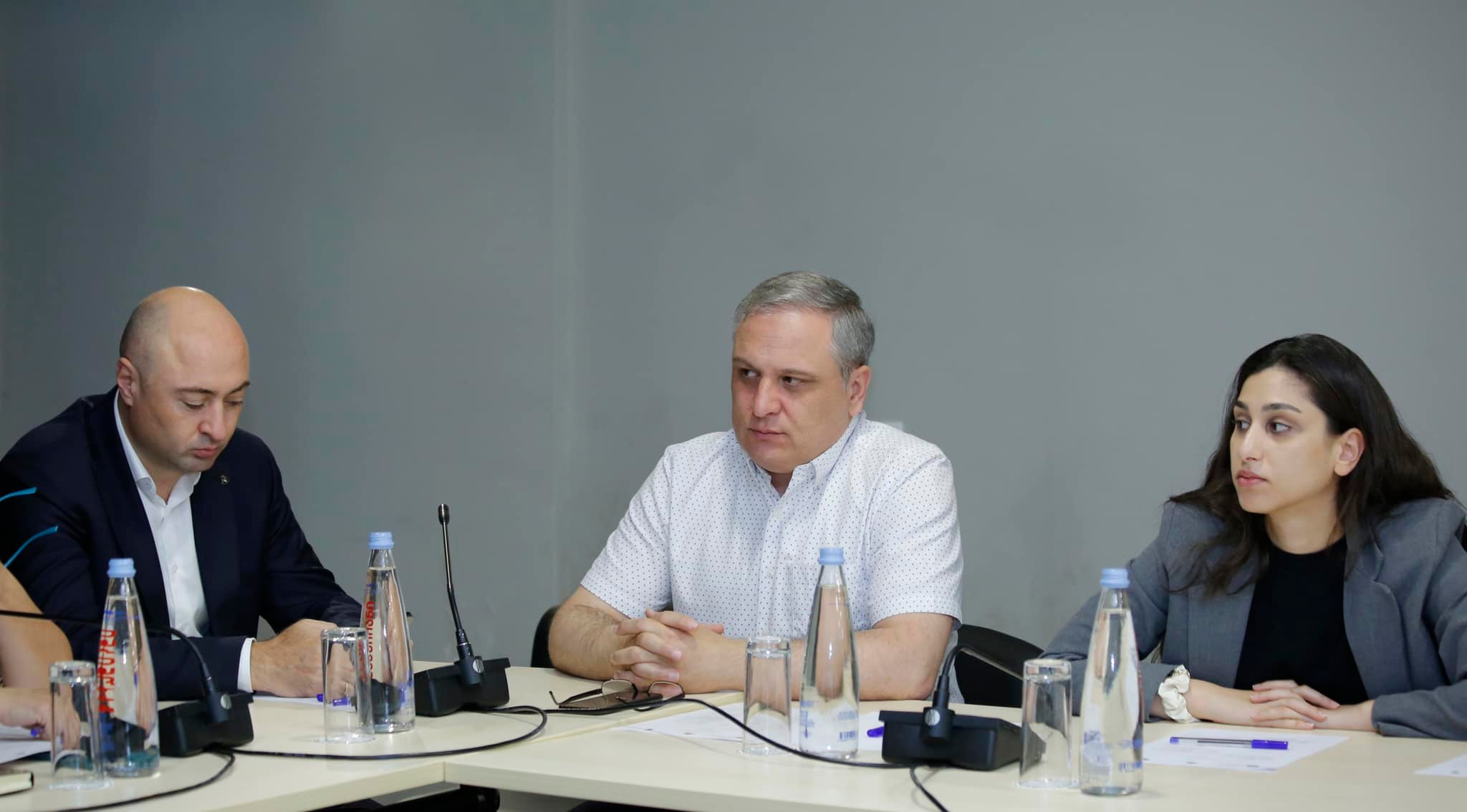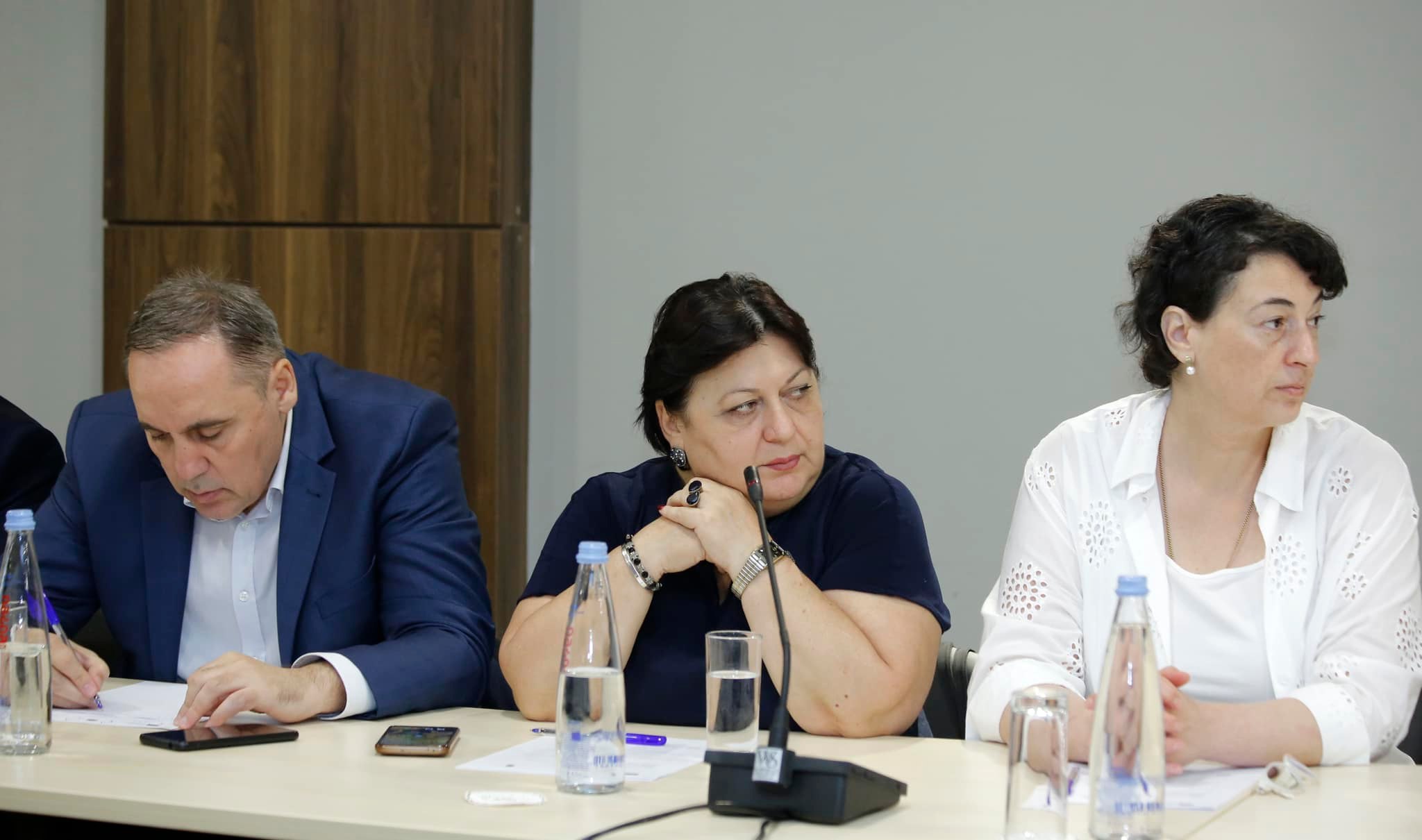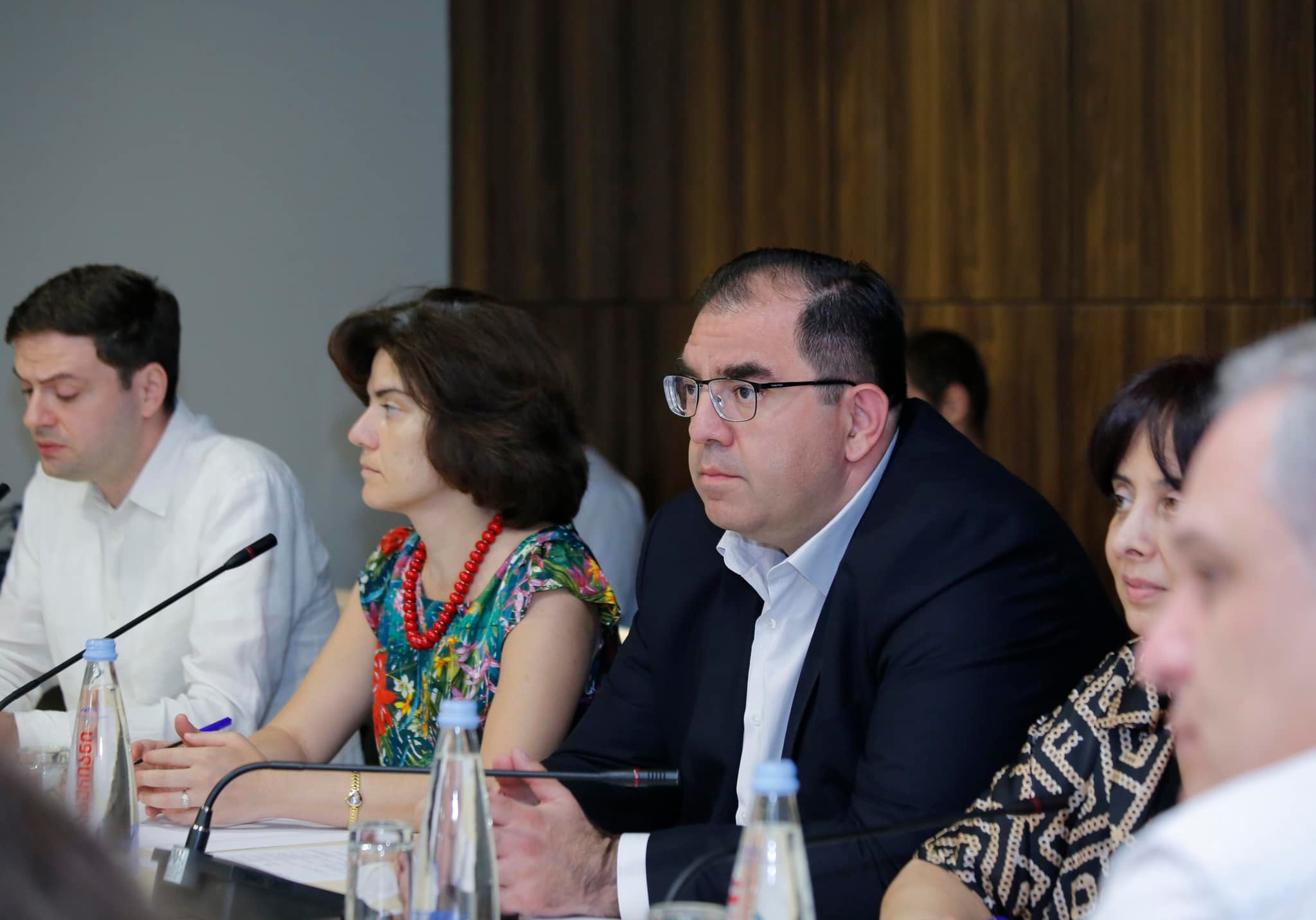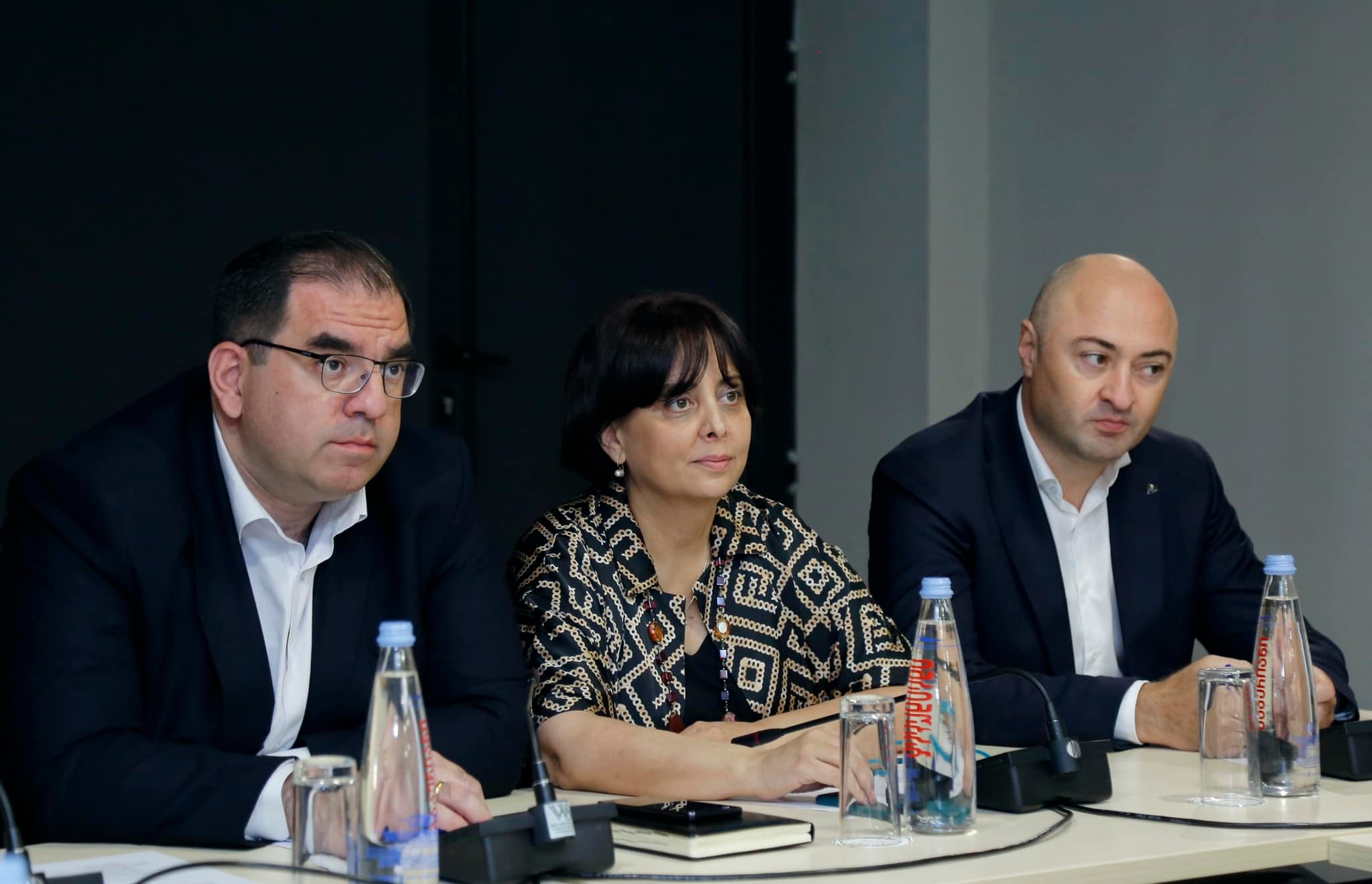News
Tengiz Nasaridze "37 organizations are involved in the work, which means that the civil sector will become even more active and increase its work area".
With the support of the European Union and the United Nations Development Program (UNDP), the Civil Committee of the Inter-Agency Coordination Council for Agriculture and Rural Development held a meeting, which was chaired by the Deputy Minister of Environmental and Agriculture, Mr. Tengiz Nasaridze.
The Deputy Minister thanked the representatives of the European Union and the United Nations Development Program for their support.
According to Mr. Nasaridze, eight new organizations joined the Civil Committee. In total, thirty-seven organizations are involved in the work, which means that the civil sector will become more active and increase its work area.
"During the Committee's working meeting, we discussed the 2024-2027 Agricultural Development Action Plan within the scope of our Strategy. Committee members got acquainted with the planned and ongoing programs implemented by the Rural Development Agency. Joint work is an excellent means to establish optimal approaches, which will help agricultural and rural development in Georgia," said Mr. Tengiz Nasaridze.
Mrs. Ketevan Khutsishvili, Programme Manager of the European Union Representation (EUD) in Georgia, noted that the Ministry of Environmental Protection and Agriculture is as open as possible regarding the development of Local Action Groups (LAGs)-the approach established in the European Union.
According to the Manager of the United Nations Development Program (UNDP), Mr. Nodar Kereselidze, the involvement of the civil and commercial sectors helps to ensure compliance with the European Union's applicable agriculture and rural development policies.
The conversation touched upon the tasks included in the 2024-2027 Action Plan of the Agriculture and Rural Development Strategy 2021-2027, which revealed the vision of the civil sector towards three strategic goals:
the competitive agricultural and non-agricultural sectors; sustainable use of natural resources, the preservation of ecosystems, the adaptation to climate change; the development of efficient food/feed safety and veterinary and plant protection systems.
The workshop also included presentations on the creation/development of new local action groups and projects that will be implemented by the local action groups (LAG) in Georgia.



